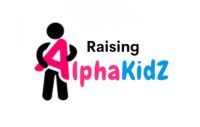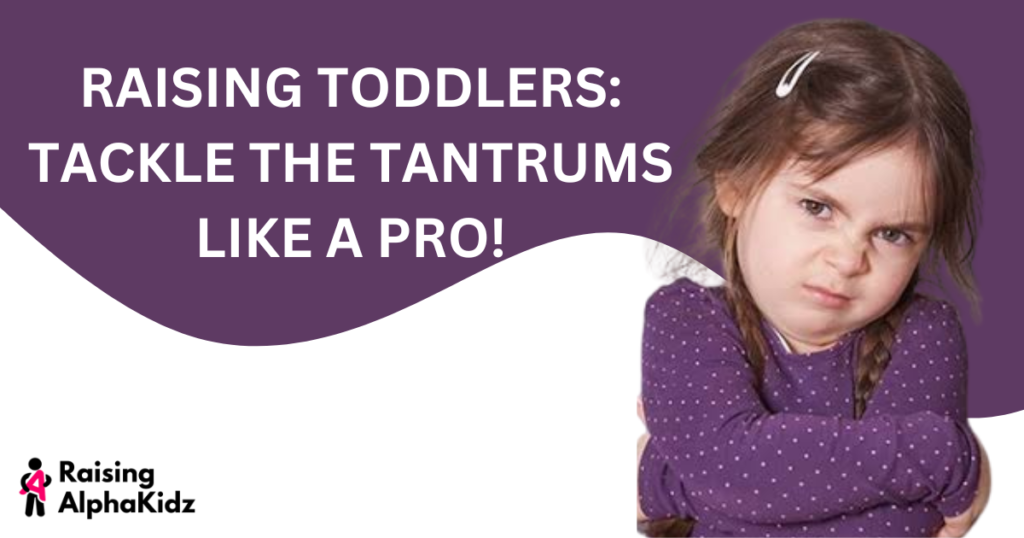Welcome to one of parenting’s best moments. Although while it can be one of life’s most wonderful experiences, raising toddlers is not without its challenges. Toddlers are little bundles of energy and emotion with an unquenchable curiosity about the world around them, as anybody who has spent time with one will relate. Even the most patient and experienced parents may find it exhausting to deal with a toddler’s tantrums, meltdowns, and other behaviours, despite the fact that it may be endlessly fascinating to watch them explore and learn. This blog article will discuss some of the typical issues associated with raising toddlers and provide advice and approaches that helps in raising toddler and handle the tantrums like a Pro Mom.
The World of a Toddler: What it’s Like
Toddlers are constantly exploring their surroundings and beginning to show an increased interest in everyday objects. They seldom have time to be inactive due to their rapid brain growth. Their small, inquisitive minds are constantly trying to conduct laborious, emotional experiments that strain our patience. At one point, our lives appeared to be blissful. They start to cry, shout, and throw fits a split second later, drastically altering our emotional needs. Despite all the challenges of toddlerhood, one thing we must consider is the emotional reasoning behind each of their odd behaviours. Let’s analyze what they actually require as toddlers.
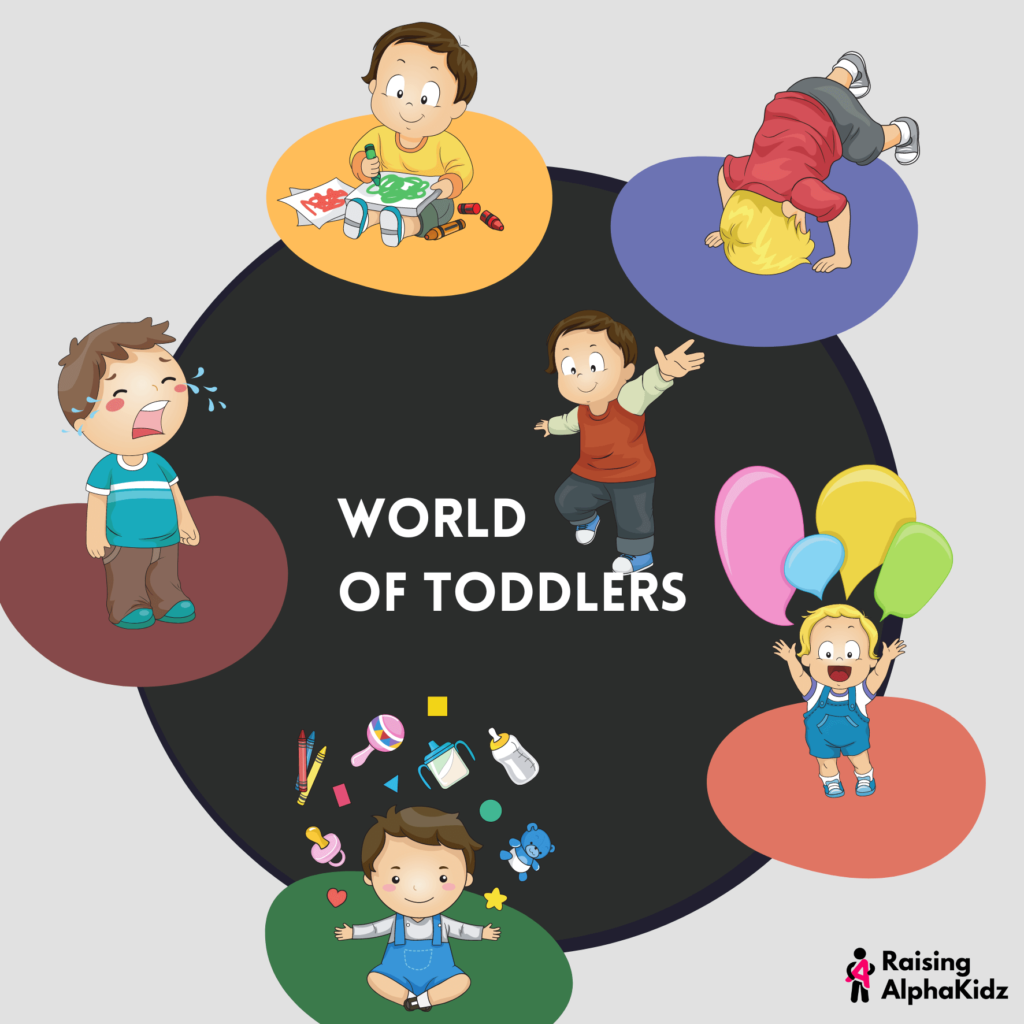
Little Freedom Fighters
Every child loves growing up with the freedom to explore the world around them. With increased curiosity and excitement, they will try more with everything around them, including bugs on grass, fragrance in flowers, shapes in the clouds, stones in sand grains, chilly water splashes, warmth from the sun, and much more. When we reject any of their requests for exploration, a power struggle over their freedom arises. If they are not watched after or supervised, this could result in unfavourable conditions.
Can’t Be Looser
They experience emotional outbursts if they are unsuccessful in their struggle for freedom. Toddlers frequently have tremendous emotional outbursts that seem out of proportion to the situation because they are still learning to control their emotions. They employ their formidable arsenal of tantrums, sobbing, and shouting until our No becomes a Yes.
Too Distracted
As parents, we might not understand why our children consistently ignore what we say to them. Yet, the actual truth is that they have a limited attention span. They are more likely to become bored and distracted within a few milliseconds because of their short attention span. While engaged in activities that change every second, they won’t pay attention to or understand your instructions or directives that last for several seconds. They won’t keep their attention on any one object for too long.
Less Words! More Actions!
The development of language skills occurs during the toddlerhood. Their dictionary of vocabulary is still too constrained, though. They won’t have anything to say on their behalf for the uncommitted words if you start ordering them around with your extensive vocabulary. They may, however, occasionally experience frustration as a result of finding it challenging to follow your directions and express.
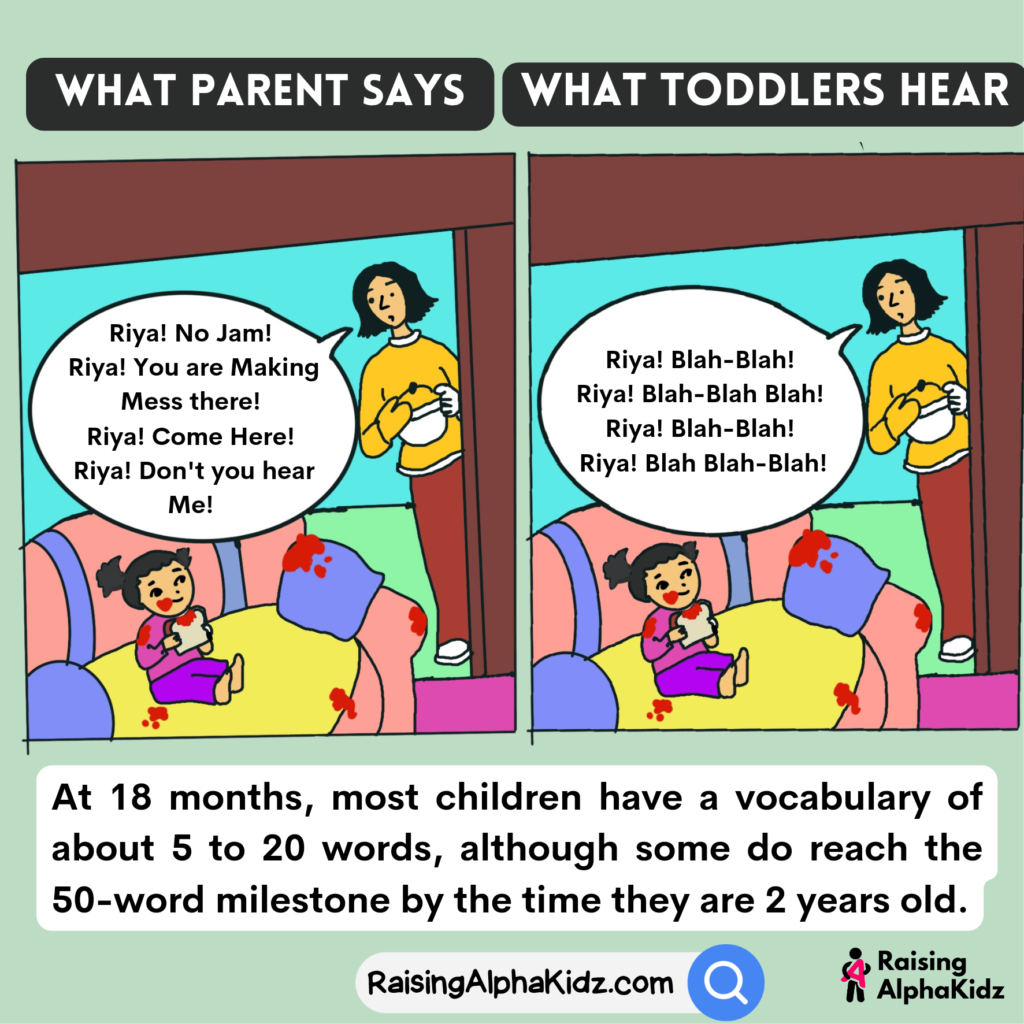
Little Gymnastics
Toddlers are still developing their gross and fine motor skills. To test their abilities, they try to catch butterflies, climb stairs, kick balls, and perform their own gymnastics with clumsy movements that leave them prone to stumbles and mishaps.
We Have Done it Wrong For A While
In the past, parenting was typically more authoritarian and centred on conformity and obedience. Parents frequently use verbal abuse and severe physical punishment to get their toddlers to obey when they haven’t lived up to their expectations. Also, toddlers who had been exposed to these methods for a year had suffered from fear and anxiety, aggression, low self-esteem, difficulties in socialising, and many other negative effects. We began to fight off these unfavourable traces of our previous parenting, and today we only occasionally use the same techniques.
Now, almost all parents are aware to frame a steady outline for Dos and Don’ts with solid reasons. Meanwhile, We encourage toddlers to express themselves but within the borders of dos and don’ts. But these strategies works well with bigger kids. What about the toddlers? All these rules sheets of dos and don’ts will Vanishes in thin air in dealing the stormy toddlers.
Handle Tantrums like a Pro
If you have babies approaching toddlerhood, you must comprehend a peculiar but distinctive way to raise them. We’ve all had the idea that Toddlers is a little kid version of elderly kids. But that’s not how things actually function. Here are some parenting philosophies and techniques that are more effective with toddlers today.
The DEAR Strategy
Managing Rage and toddlers tantrum go hand in hand, stretching out in front of parents dealing with toddlerhood. Sometimes parents become too stressed to handle toddler outbursts. In such circumstances, you can use the four DEAR techniques to make them dear to you.
D For Distraction
Distracting toddlers with something can be an effective way to manage tantrums because it redirects their attention away from the trigger of the tantrum and onto something else. Fascinating distractions can help shift attention from a distressing situation to something interesting. It controls, calms, and provides opportunities for them to relax.
Related: Read about the Activities & Toys for Toddler’s Cognition Development
E For Empathy
Lets Show some Empathy towards the explorers!
The capacity for empathy is the capacity to comprehend and experience another person’s feelings. Toddler tantrum problems can often be resolved by empathetic behaviour. Parents can engage with their young toddlers and give them the emotional support they need.
A For Assurance
The toddler can be informed that they will have needs and demands later with the support of assurance from the parents. The tantrum’s ferocity may subside as a result, and you may feel more at ease.
R For Respect
By explaining to the toddler the reasons why we are saying “No may” at that moment, parents can also demonstrate their respect for them. This can aid in the toddler’s understanding that parents are not attempting to deny them something, but rather that other matters need to take priority.
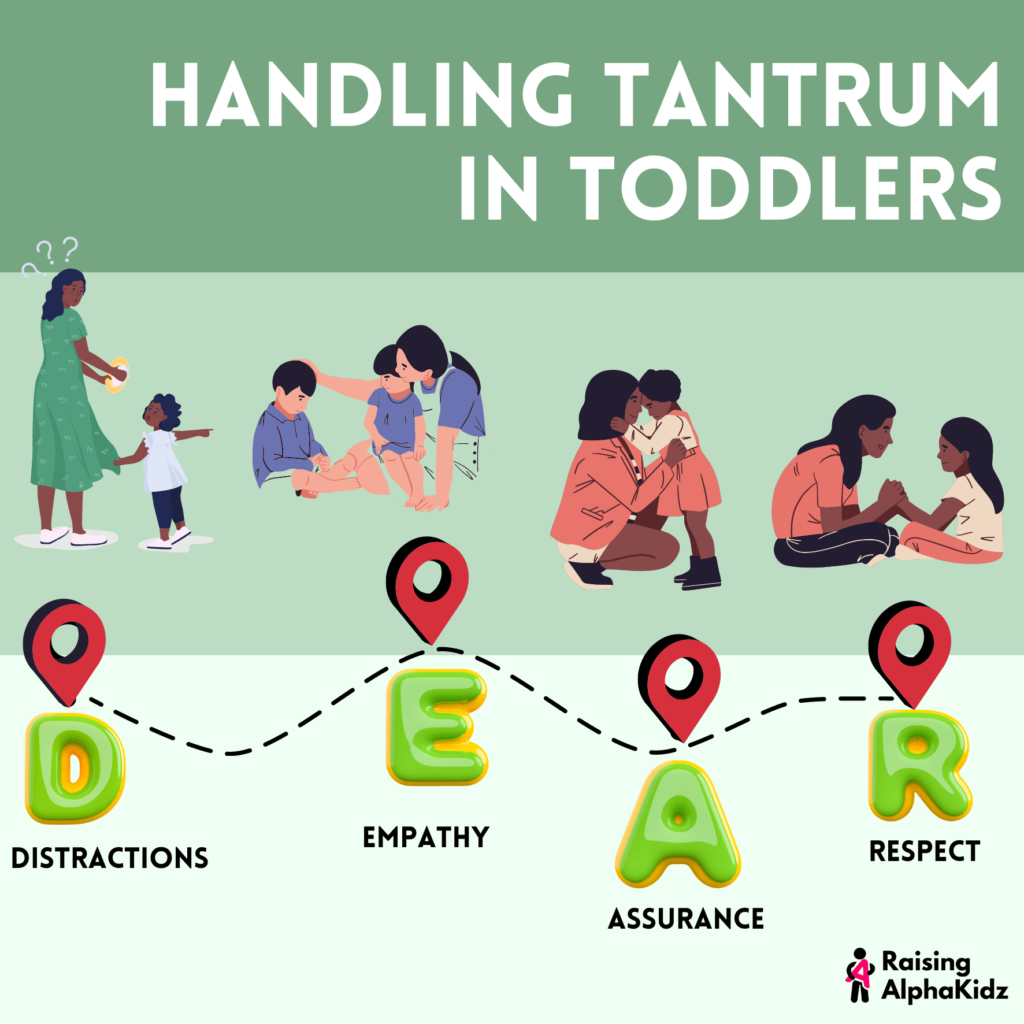
It’s Time for Practical Session
Let’s say a toddler is having a tantrum because they want to watch TV, but it’s not possible at that time. You can use a combination of distraction, assurance, empathy, and respect to sort out the issue by following steps.
- During the time of tantrums, fascinate them with a Distraction by suggesting a different activity or offering a new toy to play with.
- As the toddler begins to calm down, show Empathy by validating their emotions and expressing understanding.
- Start acknowledging the toddler’s feelings and provide Assurance that they will have an opportunity to watch TV later.
- Finally, show Respect by explaining why watching TV may not be possible at that time and offering a plan for when it will be possible.
By using this combination of strategies, the you can handle any frustrating tantrums of toddler like a Pro and also can help toddler feel heard, understood, and valued, and the tantrum can be resolved in a positive way.
| Distraction | Oh! Power goes off. Look at the ball! Let’s go outdoors and play with the ball until the power comes. |
| Empathy | I know you’re disappointed that you can’t watch TV right now. It’s Sad that power shutdown has interrupted my little ones TV time. |
| Assurance | I understand that you want to watch TV right now, but the power goes off. We can watch it after the power comes. |
| Respect | I know it’s your favourite cartoon show. we can watch your favorite TV show together after some time. |
While you handle the toddler tantrums, it is crucial to utilise clear, easy-to-understand language when putting these techniques into practise. All your efforts will be in futile if you speak to them in a sophisticated language or handle with toddler tantrums like you would do with older children.
